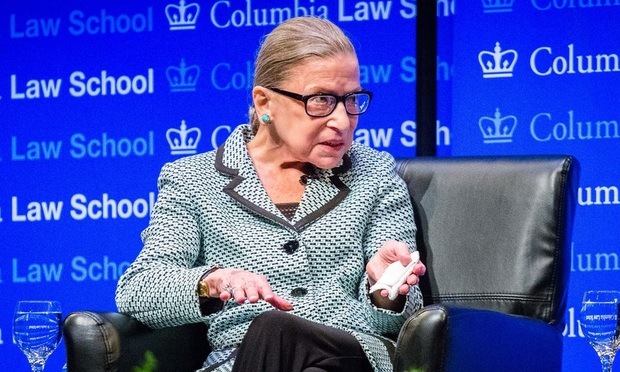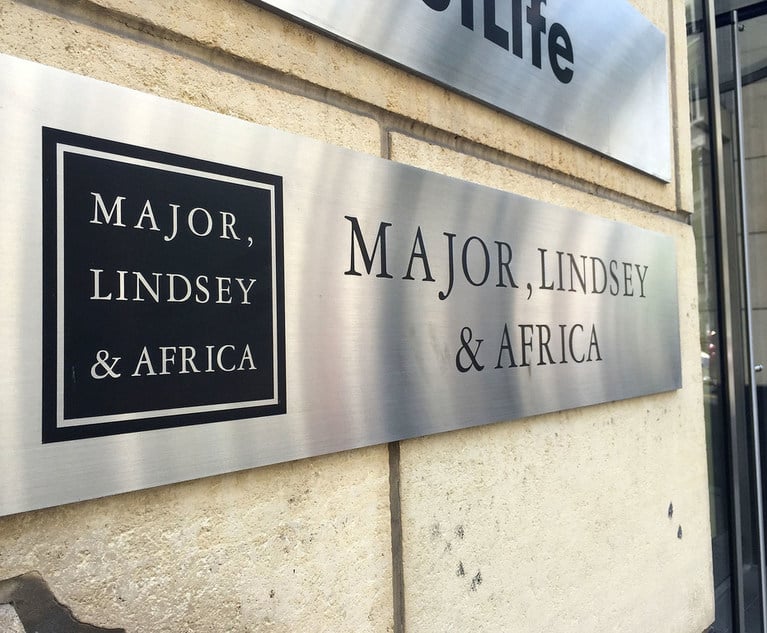In the decades since U.S. Supreme Court Justice Ruth Bader Ginsburg was a litigator fighting for equal rights for women, the field of interested parties has grown on both sides of the political spectrum, which often means a larger stack of amicus briefs for the high court to sift through.
But speaking on Friday at a panel discussion at Columbia Law School on how impact litigation can affect public policy change, Ginsburg said the proliferation of interest groups involved with litigation has been “worrisome” in some instances, citing the high court’s split ruling this year in a case to strike down a California law requiring “crisis pregnancy centers,” which do not provide abortions and oppose them, to post notices that reproductive services are available elsewhere.


 Supreme Court Justice Ruth Bader Ginsburg speaks at Columbia Law School which held a special event to honor the 25th anniversary of her investiture. (Photo by David Handschuh/ALM)
Supreme Court Justice Ruth Bader Ginsburg speaks at Columbia Law School which held a special event to honor the 25th anniversary of her investiture. (Photo by David Handschuh/ALM)





